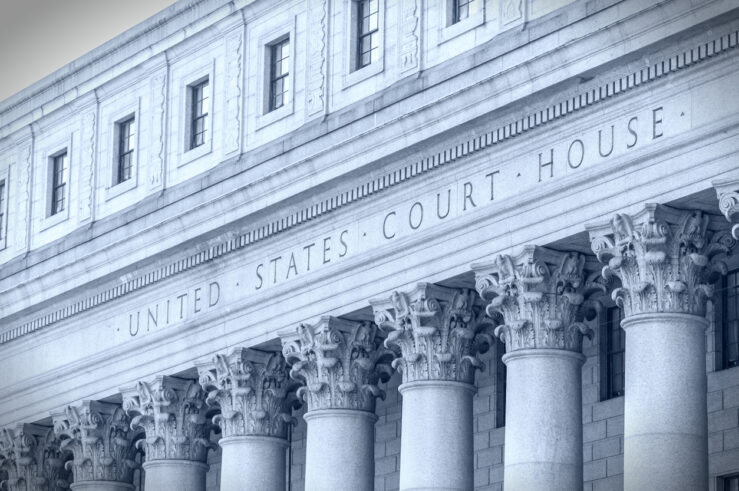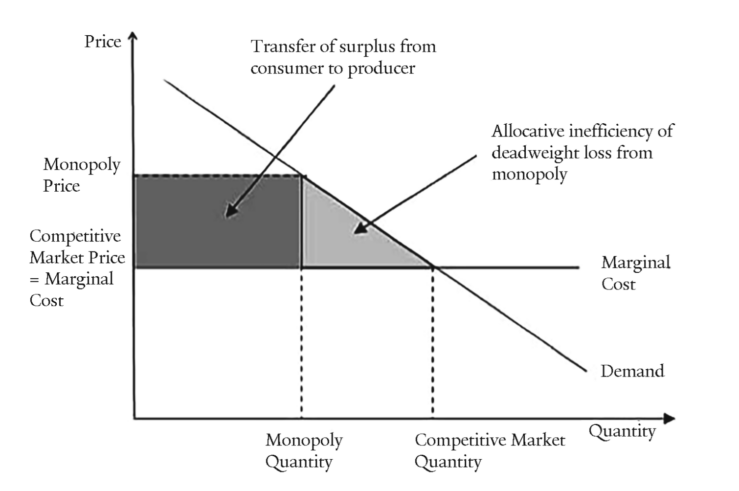Showing results for: “Google shopping manne”
UMC Rulemaking After Magnuson-Moss: A Textualist Approach
Introduction The Federal Trade Commission’s (FTC) ability to conduct substantive rulemaking under both its “unfair methods of competition” (UMC) and “unfair and deceptive practices” (UDAP) mandates was upheld by the U.S. Court of Appeals for the D.C. Circuit in 1973’s National Petroleum Refiners Association v. FTC. Nonetheless, the FTC has seldom exercised this authority with ... UMC Rulemaking After Magnuson-Moss: A Textualist Approach
Application of the Proper ‘Outer Boundary’ of Antitrust Liability for Alleged Refusals to Deal in New York v Facebook
Introduction The States brought an antitrust complaint against Facebook alleging that various conduct violated Section 2 of the Sherman Act. The ICLE brief addresses the States’ allegations that Facebook refused to provide access to an input, a set of application-programming interfaces that developers use in order to access Facebook’s network of social-media users (Facebook’s Platform), ... Application of the Proper ‘Outer Boundary’ of Antitrust Liability for Alleged Refusals to Deal in New York v Facebook
Attention Markets: They Know Them When they See Them
A raft of progressive scholars in recent years have argued that antitrust law remains blind to the emergence of so-called “attention markets,” in which firms compete by converting user attention into advertising revenue. This blindness, the scholars argue, has caused antitrust enforcers to clear harmful mergers in these industries. It certainly appears the argument is ... Attention Markets: They Know Them When they See Them
Assessing Less Restrictive Alternatives and Interbrand Competition in Epic v Apple
The International Center for Law & Economics (ICLE) filed an amicus brief on behalf of itself and 26 distinguished law & economics scholars with the 9th U.S. Circuit Court of Appeals in the hotly anticipated and intensely important Epic Games v Apple case. A fantastic group of attorneys from White & Case generously assisted us ... Assessing Less Restrictive Alternatives and Interbrand Competition in Epic v Apple
In Apple v Epic, 9th Circuit Should Remember that Antitrust Forbids Enhancing, not Exercising, Market Power
On March 31, I and several other law and economics scholars filed an amicus brief in Epic Games v. Apple, which is on appeal to the U.S. Court of Appeals for Ninth Circuit. In this post, I summarize the central arguments of the brief, which was joined by Alden Abbott, Henry Butler, Alan Meese, Aurelien ... In Apple v Epic, 9th Circuit Should Remember that Antitrust Forbids Enhancing, not Exercising, Market Power
Suggested Redline Edits to the DOJ’s Letter to Judiciary Committee Leadership
The Biden administration finally has taken a public position on parallel House (H.R. 3816) and Senate (S. 2992) bills that would impose new welfare-reducing regulatory constraints on the ability of large digital platforms to engage in innovative business practices that benefit consumers and the economy. The administration’s articulation of its position—set forth in a March ... Suggested Redline Edits to the DOJ’s Letter to Judiciary Committee Leadership
Call for Submissions on FTC UMC Rulemaking Authority
The Limits of FTC UMC Rulemaking Symposium There is widespread interest in the potential tools that the Biden administration FTC may use to address a range of competition-related and competition-adjacent concerns. Among other issues, there have been indications that the FTC may use its broad UMC authority under Section 5 of the FTC Act to ... Call for Submissions on FTC UMC Rulemaking Authority
Final DMA: Now We Know Where We’re Going, but We Still Don’t Know Why
After years of debate and negotiations, European Lawmakers have agreed upon what will most likely be the final iteration of the Digital Markets Act (“DMA”), following the March 24 final round of “trilogue” talks. For the uninitiated, the DMA is one in a string of legislative proposals around the globe intended to “rein in” tech ... Final DMA: Now We Know Where We’re Going, but We Still Don’t Know Why
Toward a Dynamic Consumer Welfare Standard for Contemporary U.S. Antitrust Enforcement
For decades, consumer-welfare enhancement appeared to be a key enforcement goal of competition policy (antitrust, in the U.S. usage) in most jurisdictions: The U.S. Supreme Court famously proclaimed American antitrust law to be a “consumer welfare prescription” in Reiter v. Sonotone Corp. (1979). A study by the current adviser to the European Competition Commission’s chief ... Toward a Dynamic Consumer Welfare Standard for Contemporary U.S. Antitrust Enforcement
Antitrust Policy and National Security Interests
U.S. antitrust policy seeks to promote vigorous marketplace competition in order to enhance consumer welfare. For more than four decades, mainstream antitrust enforcers have taken their cue from the U.S. Supreme Court’s statement in Reiter v. Sonotone (1979) that antitrust is “a consumer welfare prescription.” Recent suggestions (see here and here) by new Biden administration ... Antitrust Policy and National Security Interests
Does the Market Know Something the FTC Doesn’t?
During the exceptional rise in stock-market valuations from March 2020 to January 2022, both equity investors and antitrust regulators have implicitly agreed that so-called “Big Tech” firms enjoyed unbeatable competitive advantages as gatekeepers with largely unmitigated power over the digital ecosystem. Investors bid up the value of tech stocks to exceptional levels, anticipating no competitive ... Does the Market Know Something the FTC Doesn’t?
Unpacking the Flawed 2021 Draft USPTO, NIST, & DOJ Policy Statement on Standard-Essential Patents (SEPs)
Responding to a new draft policy statement from the U.S. Patent & Trademark Office (USPTO), the National Institute of Standards and Technology (NIST), and the U.S. Department of Justice, Antitrust Division (DOJ) regarding remedies for infringement of standard-essential patents (SEPs), a group of 19 distinguished law, economics, and business scholars convened by the International Center ... Unpacking the Flawed 2021 Draft USPTO, NIST, & DOJ Policy Statement on Standard-Essential Patents (SEPs)
















